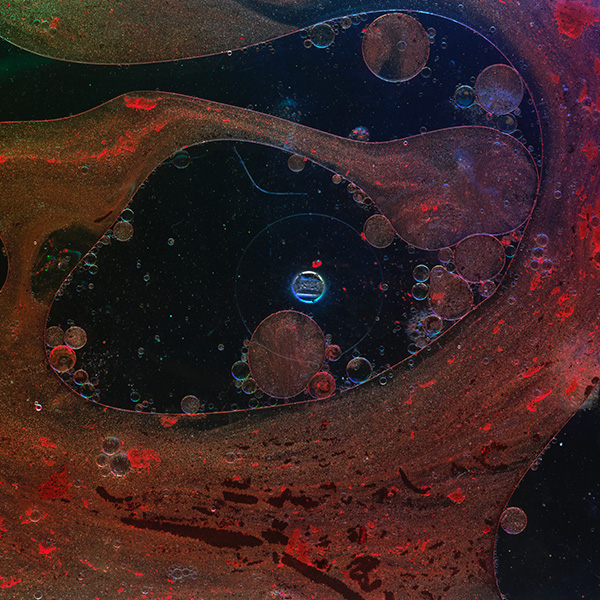Key Benefits
- Check for an underactive thyroid and identify autoimmune causes like Hashimoto’s.
- Confirm overt hypothyroidism: high TSH with low T4 and low free T4 index.
- Flag autoimmune thyroiditis: positive TPO or Tg antibodies signal immune-driven damage.
- Explain symptoms: fatigue, weight gain, cold intolerance, and hair loss fit thyroid slowdown.
- Guide levothyroxine treatment: use TSH to dose and Free T4 to confirm.
- Protect fertility and pregnancy: treat promptly, targeting trimester-specific TSH ranges.
- Predict progression risk: positive antibodies and elevated TSH increase hypothyroidism likelihood.
- Track trends: recheck TSH 6–8 weeks after changes, then every 6–12 months.
What are Hypothyroidism
Hypothyroidism biomarkers are blood signals that reveal how well the brain–thyroid system is supplying hormone to the body and whether the thyroid gland is being targeted by the immune system. The pituitary’s command signal (thyroid‑stimulating hormone, TSH) reflects how hard the brain is asking the thyroid to work. The thyroid’s main output (free thyroxine, FT4) shows the circulating hormone reservoir, while the active form used by cells (free triiodothyronine, FT3) indicates the hormone available for metabolism in tissues. Immune markers (thyroid peroxidase antibodies, TPOAb, and thyroglobulin antibodies, TgAb) point to autoimmune thyroiditis as a cause by identifying antibodies against thyroid proteins. Together, these biomarkers map the feedback loop from brain to thyroid to body, clarify whether the problem lies in hormone production, conversion, or immune attack, and provide a baseline for monitoring therapy. In short, they turn the invisible work of thyroid regulation into measurable information that guides diagnosis, reveals cause, and tracks restoration of normal hormone signaling.
Why are Hypothyroidism biomarkers important?
Hypothyroidism biomarkers map how the brain, thyroid gland, and immune system orchestrate metabolism. Together, TSH, Free T4 Index, Total T4, T3 uptake, and thyroid antibodies (TPO Ab, Tg Ab) reveal whether the pituitary is pushing the thyroid harder, whether circulating thyroid hormone is sufficient, and whether autoimmunity is targeting the gland. Because thyroid hormone sets the pace for energy use in every tissue, these markers relate to cognition, mood, heart rate, temperature regulation, digestion, skin and hair, fertility, and growth.
In a steady euthyroid state, TSH usually sits in the low-to-middle part of its reference range, with Free T4 Index and Total T4 near the middle and T3 uptake around the midrange; TPO and Tg antibodies are negative or very low. In primary hypothyroidism, TSH rises above range while Free T4 Index and Total T4 fall below, and T3 uptake tends to be reduced; positive TPO or Tg antibodies point to Hashimoto’s. During pregnancy, the healthy TSH range shifts lower and antibody positivity carries obstetric implications. In central (pituitary/hypothalamic) hypothyroidism, TSH can be low or inappropriately normal despite low T4.
When thyroid hormone values are low, cells downshift. People feel fatigue, cold intolerance, constipation, weight gain, dry skin, hair thinning, slowed thinking, and depressed mood. Women may notice heavy or irregular periods, fertility challenges, and pregnancy risks; men can have low libido and erectile dysfunction. Children may grow slowly and struggle with school; older adults may show subtle cognitive changes, bradycardia, and higher LDL cholesterol. A goiter can develop as the gland is chronically stimulated.
Big picture: these biomarkers integrate endocrine and immune physiology, forecast progression (antibody-positive states), and connect to cardiovascular risk, bone and neurocognitive health, and pregnancy outcomes. Tracking them clarifies where dysfunction sits and how it may influence long-term health.
What Insights Will I Get?
Thyroid hormones set the pace for cellular energy, metabolism, cardiovascular tone, cognition, mood, fertility, and immune balance. Testing shows how the brain–thyroid axis is signaling and how much hormone reaches tissues. At Superpower, we test these specific biomarkers: TSH ↑, Free T4 Index ↓, T4 Total ↓, T3 Uptake ↓, TPO Ab, Tg Ab.
TSH (thyroid-stimulating hormone) rises when the pituitary senses inadequate thyroid hormone—typical of primary hypothyroidism. Total T4 reflects thyroxine bound to proteins; low results point to reduced gland output. The Free T4 Index estimates unbound T4 available to cells; low values mark impaired hormone bioavailability. T3 Uptake gauges binding-protein sites and is used to compute the Free T4 Index; lower uptake usually reflects higher binding proteins and is not specific to hypothyroidism. TPO Ab and Tg Ab are autoantibodies; positivity implicates autoimmune thyroiditis (Hashimoto disease).
Together, high TSH with low Total T4 and a low Free T4 Index signals reduced tissue hormone delivery and unstable metabolic control. The magnitude of TSH elevation and the depth of T4/FTI depression help stage severity and persistence of hormone deficit. Low T3 Uptake flags binding-protein effects that can distort total hormone readings, sharpening interpretation via the index. Positive TPO or Tg antibodies indicate immune-mediated injury and a higher likelihood of progression or fluctuation over time.
Notes: Interpretation shifts with pregnancy (higher binding proteins, lower T3 Uptake, trimester-specific reference ranges), age, acute illness, and recovery. Assays and drugs can interfere (biotin, amiodarone, lithium, glucocorticoids, dopamine). In pituitary disease (central hypothyroidism), T4 can be low with non-elevated TSH, so the overall pattern matters more than a single value.







.avif)



.svg)





.svg)


.svg)


.svg)

.avif)
.svg)










.avif)
.avif)
.avif)


.avif)
.png)


